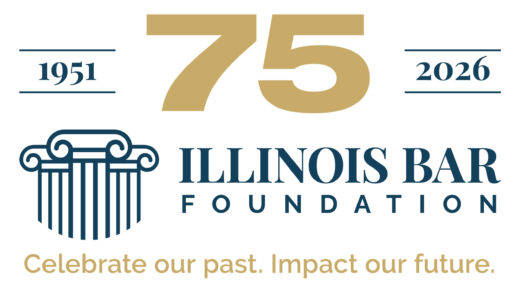Testamentary Gifts

Leaving a Legacy: There are many ways you can plan to leave a legacy to support the Illinois Bar Foundation upon your death. Some of your options may also provide you with income tax benefits during your lifetime as well.
Planned gifts can take many forms, including by will, trust, charitable remainder trust, charitable gift annuity, charitable lead trust, pooled income fund, and naming the Foundation beneficiary of your retirement plans or life insurance. These can be made during your life or upon your death. If you commit to making a deferred gift to the Foundation, you will be honored and recognized as a member of the Lincoln Legacy Society. The enrollment application can be found here.
Leaving a Gift Through Your Will or Trust
Bequests in a Will or Trust can take various forms. You can make specific gifts, percentage gifts, or residual gifts. The gifts may be outright or contingent upon the happening of something else. The gifts may be made outright for the Foundation’s general purposes, or they may be restricted. You may direct what assets are used to satisfy the (e.g., specific stock or a certain parcel of real property) or that the gift be made generally from estate or trust assets.
Because the bequest in your Will doesn’t occur during your life, you do not receive an income tax deduction. However, your estate may claim a charitable deduction for estate tax purposes for any amounts distributed to the Foundation. You may also consider directing in your documents that such gifts be satisfied first from tax-deferred assets, such as IRAs. When done properly, charitable donations of tax-deferred assets can minimize the amount of income taxes imposed on both your individual heirs and your estate.
Specific Gift
A specific bequest is a gift of a specific item or a fixed dollar amount. You may consider adding the following language to your Will or Trust to make a specific bequest to the Foundation:
I hereby give, devise and bequeath the sum of $ ________________ (or, _____ shares of my _________ stock) to the Illinois Bar Foundation, a 501(c)(3) tax exempt organization (EIN 37-0810222)20 S. Clark St., Ste. 910, Chicago, IL 60603, to be used for its general corporate purposes.
Percentage and Residual Gift
You may choose to name the Foundation as residual beneficiary either as the sole beneficiary or to receive a specific percentage or the remaining estate or trust assets. For example:
I hereby give, devise and bequeath the rest (or ____ % of the), residue and remainder of my estate to the Illinois Bar Foundation, a 501(c)(3) tax exempt organization (EIN 37-0810222) 20 S. Clark St., Ste. 910, Chicago, IL 60603, to be used for its general corporate purposes.
Contingent Gift
A contingent bequest is a specific, residual or percentage bequest that occurs only upon the happening of certain events. Common contingencies are upon the death of a spouse or the last to die of all of your descendants. It would utilize the same language, as for a Residual Gift.
Restricted Gift
A restricted bequest is a specific, residual or percentage bequest that is limited to a specific purpose. For example, you might wish to direct your gift to a specific program of the Foundation. You may consider adding the following language to your Will or Trust to make a specific, restricted bequest to the Foundation:
I hereby give, devise and bequeath the sum of $ ________________ (or, _____ shares of my _________ stock) to the Illinois Bar Foundation, a 501(c)(3) tax exempt organization (EIN 37-0810222) 20 S. Clark St., Ste. 910, Chicago, IL 60603, for the ____________ Fund, to be used to _________________.
(e.g., assist members of the Illinois State Bar Association and their families in need of financial aid)
Naming the Illinois Bar Foundation as a Designated Beneficiary
Please consider naming the Illinois Bar Foundation as one of your beneficiaries of your assets in which you can name a beneficiary directly. For example:
Life Insurance
IRAs, 401ks, or Other Retirement Plans
Payable on Death Beneficiary of a Bank Account
In Memoriam Gifts
An additional and complimentary way to include the Illinois Bar Foundation in your legacy is to include a request for In Memoriam Gifts to be made to the Foundation as part of your obituary. A written acknowledgement will be sent to both the person who makes such a gift as well as to your designated family member, recognizing the gift in your honor.
